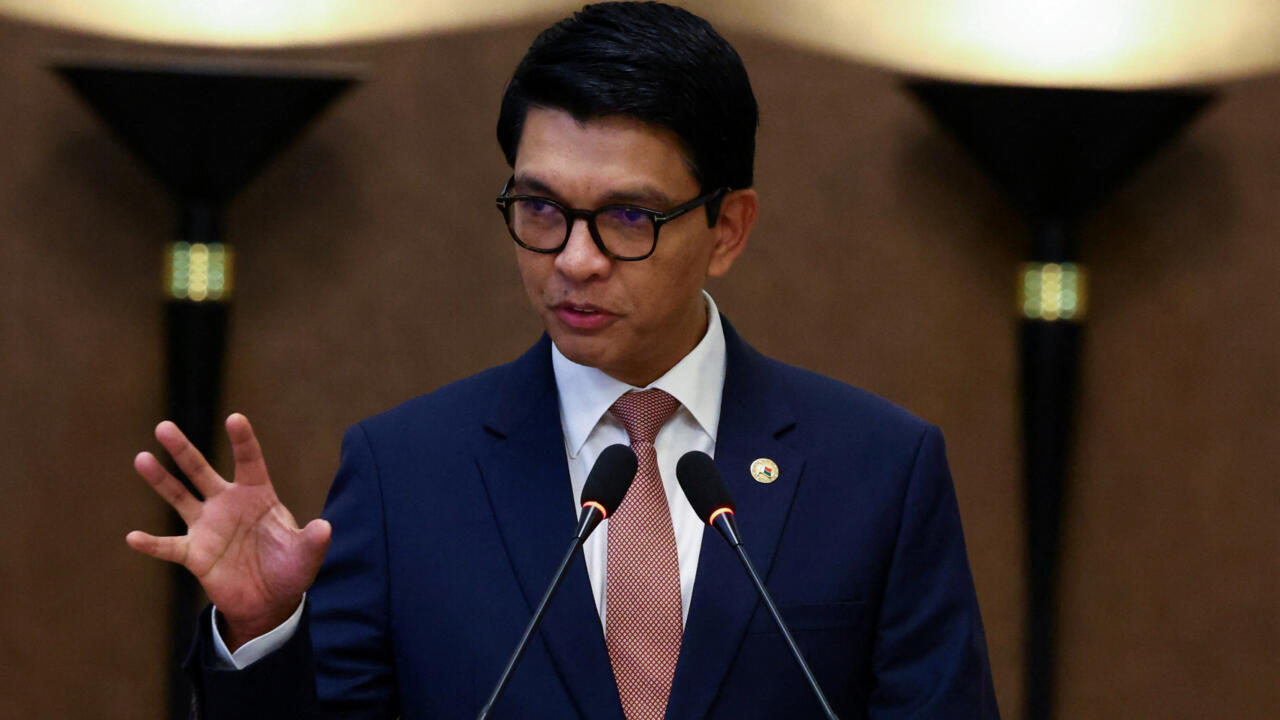
NGOCSTIP – Madagascar President Andry Rajoelina has been forced out of power after weeks of youth-led demonstrations that escalated into a military coup. The uprising erupted in the capital Antananarivo and quickly spread to other regions, revealing deep frustration with economic hardship, corruption, and leadership failures. Gen Z protesters flooded the streets demanding that the president step down. The nation’s political structure was shaken as a key military unit joined the demonstrators, turning a protest movement into a turning point in the country’s history. The president fled on a French military plane as tensions grew. New leadership discussions are underway as the nation faces economic instability and widespread public anger. This event has placed Madagascar at the center of global attention, showing how powerful youth movements can shape national politics and alter the course of government.
Protests against Madagascar President Andry Rajoelina began last month after severe power and water shortages frustrated citizens. These shortages ignited broader anger about leadership failures and rising inequality. Thousands of young people gathered at May 13 Square, historically known for political uprisings. Protesters accused the government of ignoring their suffering and demanded immediate change. Official statements acknowledged public dissatisfaction but failed to calm the streets. A United Nations report confirmed dozens of deaths during the government’s violent response to demonstrations. International observers expressed concern about the rising tensions. As protests spread beyond the capital, cities like Toliara and Diego Suarez also became flashpoints. This growing movement reflected not only anger over daily hardships but also a rejection of political corruption and nepotism. Gen Z demonstrators positioned themselves as the face of a new resistance movement, challenging the established political elite and the current administration.
“Read about: Hamas Executions Shock the World Just Hours After Historic Peace Treaty with Israel”
The turning point came when an elite military unit known as CAPSAT sided with the protesters. The loss of army loyalty stripped Madagascar President Andry Rajoelina of his strongest protection. His office released a statement claiming control of national affairs, but rumors spread quickly that he had fled. Soon after, he confirmed in a recorded video address that he had left to protect his life. The broadcast was delayed due to an attempted seizure of a state media station. This echoed the events of 2009 when the same military unit played a key role in his rise to power. The defection of CAPSAT marked a decisive moment, transforming a protest into a full coup. Streets filled with chants as citizens celebrated what they viewed as the fall of a corrupt government. International actors began monitoring the situation closely to assess the potential for further instability.
“Read more: Shocking News! R&B Legend D’Angelo Reportedly Dead at 51”
One major factor behind the unrest is the country’s severe poverty. According to data from the World Bank, over 75 percent of Madagascar’s population lives below the poverty line. Economic stagnation, low agricultural productivity, and lack of investment in key sectors have left millions struggling to survive. Urban poverty continues to rise sharply. Access to clean water, proper sanitation, and health care is extremely limited. Young people feel the impact of these conditions the hardest, with high rates of malnutrition and limited educational opportunities. These economic struggles have created fertile ground for political dissatisfaction and resentment toward the ruling elite. Gen Z protesters voiced these frustrations loudly, calling for leadership that will invest in public welfare instead of political privilege. Their movement has drawn global attention to the deep-rooted economic inequality in Madagascar and the urgency of addressing poverty as a political issue.
The Gen Z uprising in Madagascar is part of a growing global trend of youth-led movements challenging political systems. Similar protests have taken place in Peru, Nepal, and Morocco, where young people have voiced anger over inequality and corruption. In Peru, demonstrations against a controversial pension bill turned violent. In Nepal, protests over corruption and censorship triggered a change in government after deadly clashes. Across South and Southeast Asia, youth movements have also reshaped political debates. These actions reveal a new generation unwilling to accept outdated political structures. In Madagascar, young people have used their collective power to bring down a sitting president. Observers note that this wave of youth activism could influence future uprisings elsewhere. International leaders are closely watching how the situation unfolds, as the power of Gen Z continues to rise on the global stage.
This article is sourced from time.com and for more details you can read at ngocstip
Writer: Sarah Azhari
Editor: Anisa